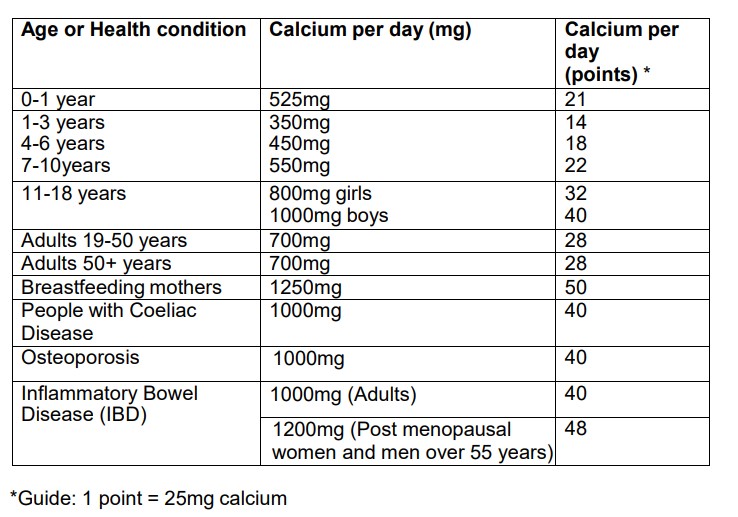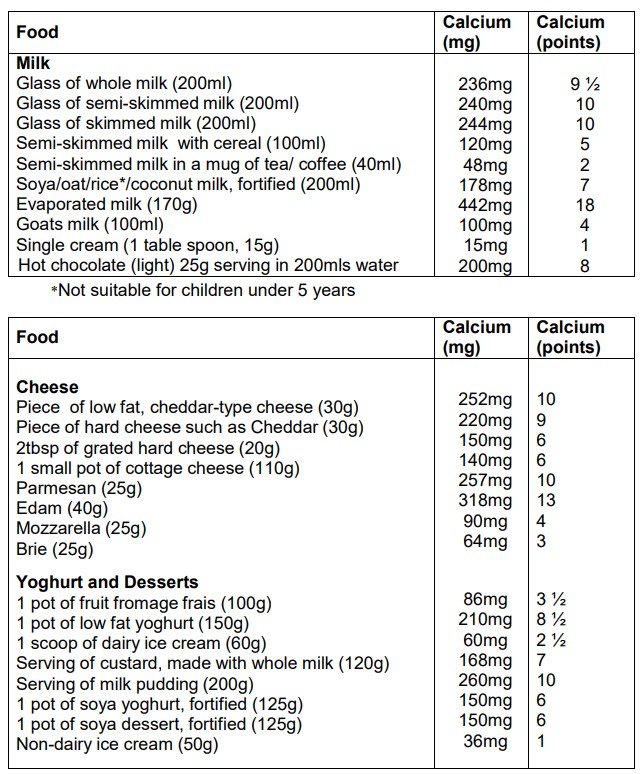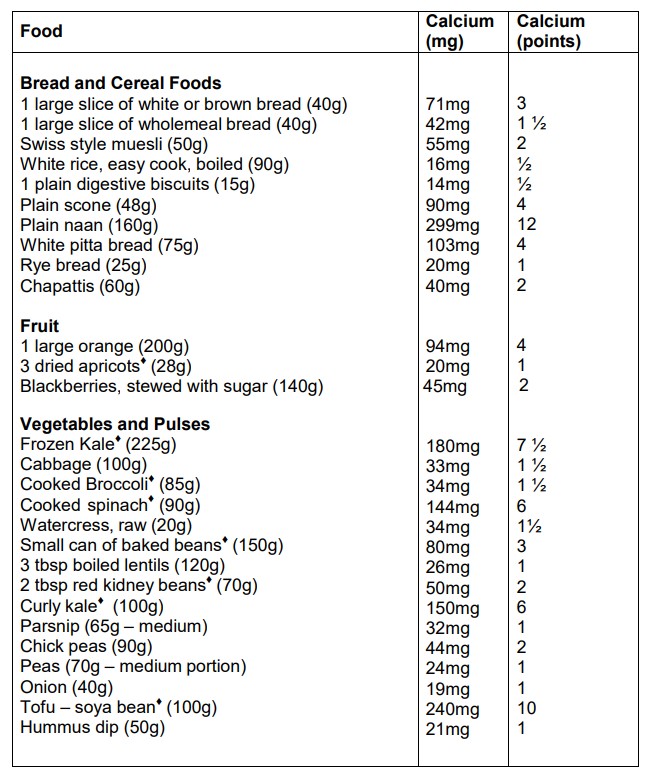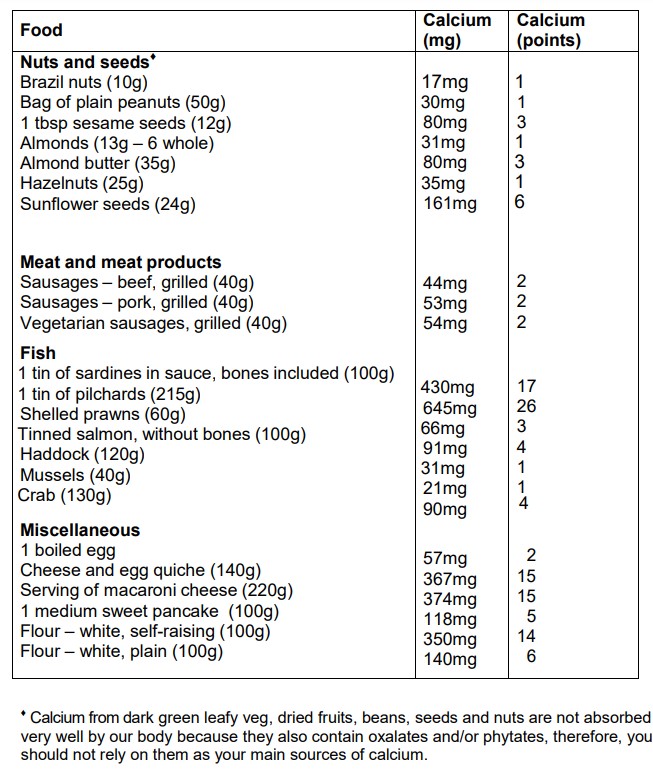Calcium information sheet
Please note, this page is printable by selecting the normal print options on your computer.
Why do we need calcium?
Calcium is needed in our bodies to perform a variety of functions. Most of our calcium is stored in our bones and teeth. Calcium is also found in other parts of our body and is used for maintaining a normal heartbeat, helping with blood clotting and helping muscles to contract and relax.
What else is important?
Vitamin D helps the body to absorb calcium from the food we eat. We can make our own vitamin D by the action of sunlight on our skin and this is where our main source of this vitamin comes from. It is also found in some foods such as oily fish e.g. sardines, mackerel, pilchards and tuna; eggs and fortified foods such as breakfast cereals and margarine. These sources are important to people who can’t get outdoors or who don’t expose their skin to sunlight very often. Vitamin D supplements can also be prescribed if required.
Where do you find calcium?
Milk and milk products e.g. cheese and yoghurt contain a lot of calcium and provide most of the calcium in our diet. You can also obtain calcium from tinned fish and fish paste (with soft bones), e.g. tinned salmon and sardines.
How much calcium do I need?
The following table shows the recommended daily calcium requirements depending on your age:

Typical calcium content of food: The following list gives the calcium content in a standard portion of some foods. You can add up the calcium points of the foods you are eating and check your intake with the above recommendations.



Physical activity:
The stronger you can build your bones, the less likely you are to have problems with them in later life. To help strengthen your bones, regular weight bearing activities such as walking, jogging, tennis and dancing are important along with a good calcium intake. Most people reach their maximum bone strength by the age of 35; after this, regular activity is important to prevent the loss of this strength. We should all be aiming for at least 30 minutes of activity a day.
Questions and Answers
What about Calcium Supplements?
If you are eating a variety of calcium rich foods every day then you are unlikely to need calcium supplements. Calcium supplements can however, be beneficial if you are not able to consume enough calcium in your diet, or your requirements are increased. Talk to your doctor or dietitian about your requirements before taking any supplements.
What about the fat content of dairy products?
If you are worried about your weight you may want to reduce your fat intake. Choose the low fat varieties where possible, such as skimmed milk, low fat yoghurts and reduced fat cheese. This does not affect the calcium content.
What if I cannot tolerate dairy produce?
Choose non-dairy calcium sources such as those listed previously. You may find you can use soya, nut, rice or oat products as an alternative but make sure they are labelled as fortified with calcium. If you still feel your calcium intake is low, discuss with the doctor or dietitian the possibility of calcium supplements.
How much sunlight do I need to get enough Vitamin D?
If you go out in the sun during the summer months two or three times a week for at least 15 minutes (before applying sunscreen), this should give you enough vitamin D. It is recommended that everyone over the age of one takes a daily supplement containing 10µg of Vitamin D during the autumn and winter months. However, people who are at risk of low vitamin D levels including people over 65, those with darker skin or less exposure to sun, pregnant and breastfeeding women will require daily vitamin supplementation all year round.
